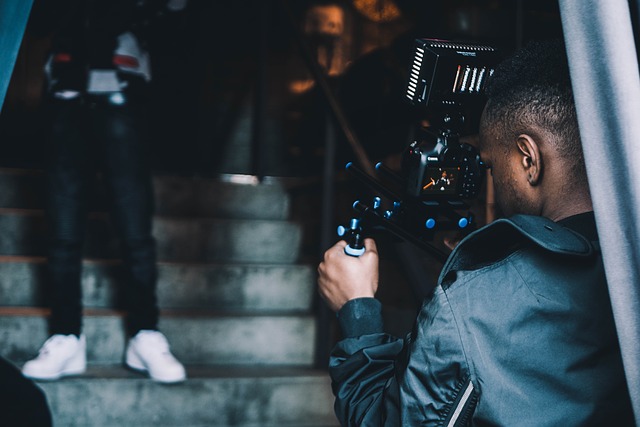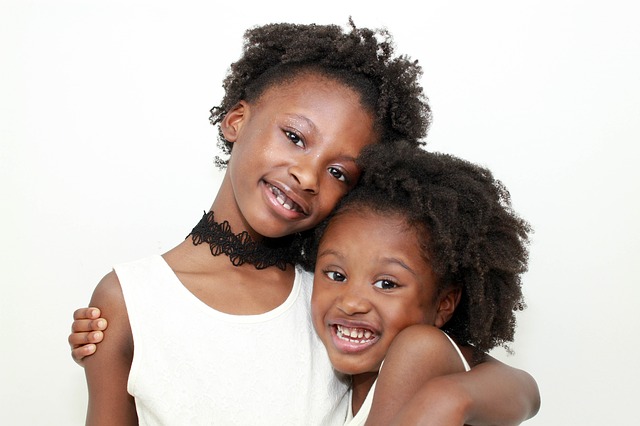Now more than ever you can find Muslim women and men of all ages occupying different popular spaces. From big screen favorites to social media influencers, Muslims are making their mark on the world.
However, not all Muslims are largely represented. Specifically, I’m talking about Black American Muslims.
This is an issue not restricted to entertainment and popular culture. Beyond the realm of sports and entertainment, tangible, everyday local and community-supported Black Muslim leaders are not as widely visible as non-Black American Muslim leaders.
This limited visibility within the majority of our Muslim communities is a detriment to Black youth, who are building their identities and would benefit from seeing examples of strong, knowledgeable, pious Muslims who look like them and can understand the importance of maintaining their Black culture.
The forgotten youth
How did Black American Muslims become the forgotten youth? It’s the result of the burden of having to successfully navigate two social spaces that infrequently interact:
- The majority of Black Americans are Christian.
- The majority of Muslim spaces are non-Black.
In actuality, with the exception of the Nation of Islam, predominantly Black Muslim spaces are few and far between. This puts young Black Muslims in a difficult predicament. They are a racial minority within many Muslim communities and a religious minority amongst Black Americans.
What can young Black American Muslims do in order to build identities that speak to their unique experiences and values all while learning and growing in their Islamic faith?
Realistically, youths can do only so much on their own. It takes a joint effort to ensure that Black Muslim youth aren’t stripped of their Black culture while growing in Islam. It starts with communities recognizing and accepting that Arab and other non-American cultural practices are not synonymous with Islamic practice.
Mentorship is a must
You have to know the history of your people. Black Muslim youth must know the pioneers that came before them and their contributions to the Islamic community.
It is imperative to seek knowledge from someone who shares your culture and has an intimate understanding of your faith when building your own identity.
It goes without saying that our elders are to be loved, honored, and cherished. More importantly, they are also vessels of knowledge who can pour into young Muslims. Our youth should not be hesitant to reach out in earnest to older Black Muslims, and older Black Muslims should make themselves available as mentors.
It is invaluable to form a bond with a religious elder who possesses an understanding of socio-economic differences and disparities, macro and micro aggressions from within and outside of the larger Muslim community beyond a textbook understanding.
The lived experience adds a deeper layer of insight. Learning from someone who has successfully navigated the unique path of practicing the Islamic faith without abandoning their Black identity gives the younger generation hope, a sense of belonging, and the joy that comes with visibility and representation.

The mosque’s role
Our communities need to create opportunities for youth to connect. The mosque can provide a safe space where youth can share their interests beyond the scope of Islam.
Even if a young Muslim finds just one other youth to connect with, this increases their chances of enjoying their journey in the Islamic faith. Having someone to pray, learn, and grow with provides accountability and fights negative feelings that can arise from isolation.
Overall, Black American Muslim youth have the strongest chance of building their identities when they are seen as a priority within their communities.
Mosques must take extra care to offer activities and opportunities that are of interest to Black American youth. If they don’t, there’s a chance that a generation of Muslims could be lost due to sheer negligence.
After all, the face of the Muslim community is not one race or ethnicity. It is as beautiful and welcoming as Islam itself. Our diversity is what gives us our strength; we must foster it.
Beyond mosque walls
Thanks to our tech-enriched society, the Muslim community is not restricted by physical location. Black American Muslims can find those with similar interests via social media networks.
Youth who enjoy cooking, gaming, crafting, and a multitude of hobbies can now connect with Muslims who enjoy the same. The intersection of common interests, culture, and faith are the building blocks to developing well-rounded individuals who have pride in their faith and their culture—a pride that doesn’t waiver based on if they are surrounded by the Black or Muslim communities.
Achieving a sense of belonging does not have to come at the price of sacrificing one’s Black or Muslim identity. Being a Black Muslim does not require one to be either Black or Muslim at any given time.

Our youth should be taught and encouraged to celebrate their wonderfully complex identities. This is especially important for converts and their families, who are the most vulnerable, impressionable, and thirsty for knowledge and acceptance.
I accepted Islam in my twenties, and the mosque I attended had a large Arab and Pakistani population. I’ll never forget one of the Pakistani sisters pulling me to the side months after I reverted.
She tugged at the sleeve of my Abaya saying “Why are you wearing this? This is them. It’s not you.” Her question resonated because she was wearing a sari. It was a defining moment for me because I realized I could love my Blackness and Islam.
This is a fundamental principle that I wish all of our Black American Muslim youth understood. They are Black enough and Muslim enough. Black American Muslim youth are worthy of the investments of our time, resources and love.
First published: February 2019

